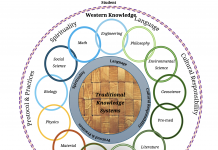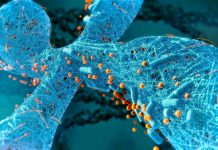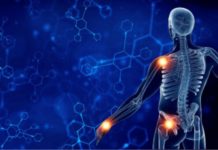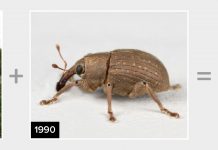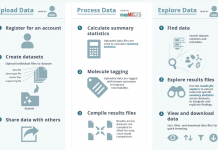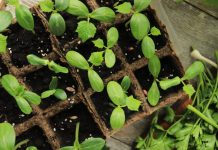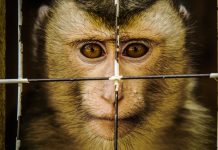Open Access Government produces compelling and informative news, publications, eBooks, and academic research articles for the public and private sector looking at health, diseases & conditions, workplace, research & innovation, digital transformation, government policy, environment, agriculture, energy, transport and more.
Home 2024
Archives
Unlocking the power of energy efficiency: A multi-benefit approach with the referee tool
Energy efficiency is a cornerstone of the European Green Deal and the European Union’s (EU) pathway toward carbon neutrality. With implementation efforts underway across the Continent, the Referee tool stands ready to support decision-makers and stakeholders in their energy efficiency planning, embracing a multi-benefits approach.
Internet-delivered cognitive behavioural therapy
Heather D. Hadjistavropoulos, Hugh C. McCall, and Jill A. B. Price, walk us through internet-delivered cognitive behavioral therapy tailored to public safety personnel.
Indigenous students face disparities in STEM
Dr. Judith Brown Clarke and Dr. Wendy K’ah Skaahluwaa Todd, shed light on the crucial role of cultural identity in native American-Alaskan students’ persistence and success in STEM fields and the Geosciences.
Insights on metabolic health and reproductive wellness with Dr. Carol Elias
In this exclusive interview, Dr. Carol Elias simplifies the complex link between metabolism and reproduction, sharing insights into the science behind our physiological balance.
Decoding the patterns of spiderweb capitalism
Dr Kimberly Kay Hoang, the Director of Global Studies at the University of Chicago’s Department of Sociology, reflects on ‘spiderweb capitalism’ and her efforts to unravel opaque financial networks worldwide.
Revolutionizing pain medication: Preventing addiction and side effects
Stephen Vanner, president of pHarm Therapeutics Inc., and Christoph Stein, inventor and co-founder, discuss a new class of analgesics for pain caused by tissue injury and inflammation.
Ultrananocrystalline diamond coating (UNCD™): Revolutionizing surface engineering
Unique, low-cost ultrananocrystalline diamond (UNCD™) coating is facilitating new generations of industrial products, high-tech devices, medical devices, and prostheses.
Classical biological control: Nature-based solutions to reduce pesticide usage
Professor Martin Hill from the Centre for Biological Control at Rhodes University discusses the benefits of classical biological control and highlights the necessary considerations for this approach.
Data and specimen-sharing tools offer new discovery opportunities for ME/CFS researchers
Within the field of Myalgic Encephalomyelitis/Chronic Fatigue Syndrome (ME/CFS) research, two online tools: mapMECFS (Mathur and Carnes, 2021) and searchMECFS play a crucial role in advancing the understanding of ME/CFS by encouraging researchers to share and use data and biospecimens that are stored in centralized and easily accessible data portals.
Appreciating biodiversity science: Why biodiversity should be a big science
Professor F. Guillaume Blanchet from Université de Sherbrooke posits the importance of treating biodiversity science as a big science to reach the goals set during the COP15 on biodiversity.
Enhancing marathon safety: The role of low-dose aspirin in cardiac arrest prevention
Arthur J. Siegel, Medical Director at MGH Internal Medicine Associates, Belmont, MA, USA tells us how low-dose aspirin can support primary prevention of marathon-related cardiac arrest in middle-aged men with coronary atherosclerosis.
Current challenges for European democracy
Cesare Pinelli, Professor of Constitutional Law at the University of Rome La Sapienza, discusses the reasons behind the EU’s vulnerability to criticism by populist leaders.
Agriculture: Harnessing AI for healthier soils
David Green, Executive Director, and Maite Caballero, Senior Researcher from The U.S. Sustainability Alliance, argue that AI technologies pave the way for healthier soils in agriculture.
Moving past animal experiments to understand human neurological disease
Richard J. Miller, PhD, Professor Emeritus of Pharmacology at Northwestern University Feinberg School of Medicine, says that the belief monkeys and other animals are essential for performing translationally useful research for human neurological disease is outdated and incompatible with 21st-century science.
Circular textiles research: Recycling technologies
Miguel Sanchis Sebastiá, CEO of ShareTex and Ola Wallberg, Professor at Lund University, unpack research and innovation within circular textiles sector, explaining the role of recycling technologies in a larger strategy.
Understanding and supporting neurological conditions among the incarcerated
Samuel Han and Audrey Nath discuss neurological conditions among the incarcerated, who they argue are a medically underserved population.
Reshaping the discourse on women’s voices in metal music
Lori Burns, Professor at The University of Ottawa, walks us her research on reshaping the discourse on women’s voices in metal music.
Violent extremism: The journey in and the pathway out
Understanding and addressing violent extremism goes beyond just ideology. Morten Bøås of the Norwegian Institute of International Affairs suggests that looking at the underlying reasons and addressing its root cause might be crucial to finding solutions.
Puppetry to cement European cultural identity
Tracing Western European repertoires of puppet and marionette theatres brings to light the international circulation of heroes, techniques, and stories. It demonstrates how this popular type of entertainment contributes to the dissemination of shared cultural references.
Exposure to Libby Amphibole: The clinical picture of autoimmune disease
Karen Lee Morrissette and Jean C. Pfau from the Center for Asbestos-Related Disease discuss the clinical presentation and complexity of the autoimmune disease progression among those exposed to Libby Amphibole.



